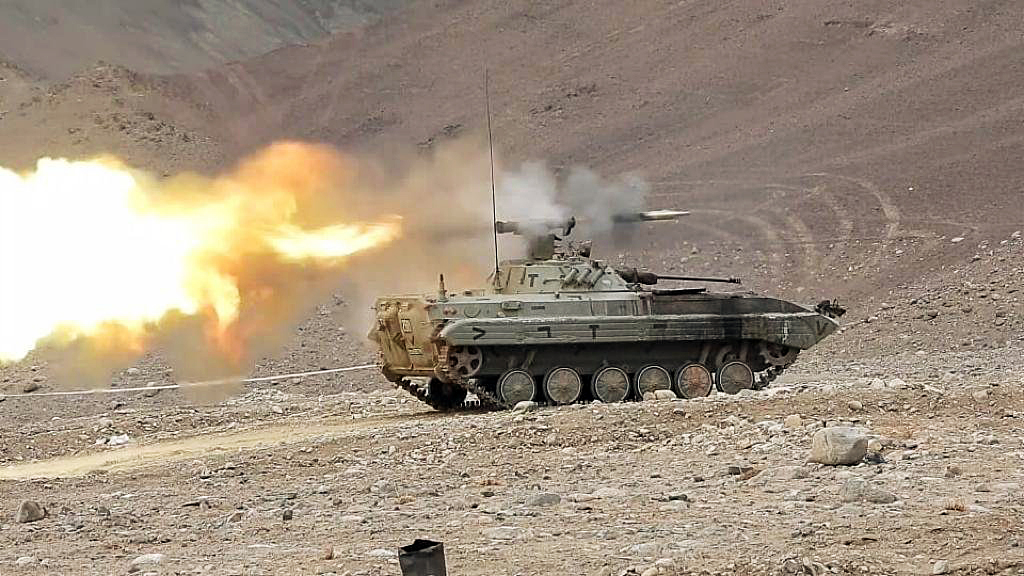Heal the wound by surgical intervention. Liberate the rest of Kashmir and cut the CPEC nexus of our enemies.
The British, after first dividing Ireland, divided India on religious lines and left it with a festering wound that has slowly poisoned the sub-continent and beyond. The British used the “Mandate to rule Palestine” given by the League of Nations to divide Palestine on religious lines, nine months after partitioning India, producing another festering wound. Communal harmony and religious syncretism like Sufism and Kashmiriyat are among the many victims of jihad. To heal our festering wound we need a triple approach.
First, strengthen our national health by building a strong, inclusive, self-reliant (not necessarily self-sufficient) economy and infrastructure, with effective arbitration and timely justice for all. By strengthening our economy, we can improve our education and health facilities, defence capability and influence globally. Like cancers and addictions in an unhealthy person, inner enemies of the nation that poison its health need to be identified and tackled as first priority.
Second, weaken external threats with proactive action like with prophylactic antibiotics. Chinese strength and hegemony are based on its export based economy, by gaming of global trade policies. We can and should replace China in the global supply chain and in Chinese projects abroad. India can out-compete cheap Chinese goods by using its strength in frugal engineering and software to reliably provide goods with better quality, efficiency and features. Pakistan has been repeatedly attacking us through propaganda in international fora and in tribal guise with proxies in Kashmir. The US succeeded in defeating the USSR in mountainous Afghanistan in an asymmetric war by arming and training proxies. Later it lost a conventional war against those same proxies of a duplicitous Pakistan. We need to take countermeasures that will lead to the further break up of this failed state.
Third, heal the wound by surgical intervention. Liberate the rest of Kashmir and cut the CPEC nexus of our enemies. To understand the anatomy—the military geography of this mountainous region—we need to understand plate tectonics. The Indian tectonic plate colliding against the Eurasian plate led to the formation of parallel mountain ranges with valleys in between in the Himalayas to the north, the Hind Kush to the west and Arakan mountains of Myanmar to the east. These parallel ranges have encouraged China to use salami slicing strategy to capture one mountain range and valley after another. Occupation by Pakistan of the long stretch of ridges overlooking the only road linking Srinagar and Leh in Kargil district was a similar tactic. India can use similar tactics, by attacking terrorist bases on mountains parallel to the LOC and then retaining that range of mountains and the valley beneath and progressively liberating one valley after another, especially the Gilgit and Hunza river valleys. Breaking up Pakistan would be a better alternative. Traditionally, the watershed or ridgeline was treated as the political boundary on mountain ranges like the McMahon Line on the Indo-Tibet border. The 2 July 1972 Indo-Pak Shimla Agreement has been breached by Pakistan, just like China breached the Shimla Conference (October 1913-July 1914) negotiated Indo-Tibet border and the LAC. So we do not need to restrict ourselves from crossing the LOC or LAC anymore. The Indian Army did well to occupy Siachen glacier and more recently the heights on the north bank of Pangong Tso.
TIMING IS THE ESSENCE: When to operate or strike is as important as what and how to strike. US General George S. Patton Jr famously stated “A good plan violently executed now is better than a perfect plan executed next week.” Often the best policy in an asymmetric war as the one we face in Kashmir is a pre-emptive strike at a place and time of your choice with the element of surprise in your favour rather than waiting for the enemy to take you by surprise.
PUBLIC PERCEPTION AND SUPPORT: The diplomatic factor is in our favour at present vis-a-vis the Sino-Pak axis. Superpowers cheated by Pakistan, probably expect India to solve the problem, considering intelligence chiefs of every major power except China made a beeline to New Delhi recently. Local support was a major factor in the success of the Bangladesh war of liberation. Arrogance and exploitation led the local Balti, Burushaski, Shina speaking population in POK to hate Pakistan and China. Good public relations and media management by India will help get and retain local civilian support.
WAIT AND WATCH: We need to be focused on Pakistan, not Afghanistan. On the death of the Amir of Afghanistan, Dost Mohammed, on 9 June 1863, the governor-general in India, Lord Lawrence’s policy of masterly inactivity was “we will leave the Afghans to settle their own quarrels, and that we are willing to be on terms of amity and goodwill with the nation and with their rulers de facto”. This is our best policy towards Afghanistan at present. If like landlocked mountainous Switzerland in the heart of Europe, Afghanistan had been left neutral, with its syncretic traditional culture, it may have been a safe haven for peace rather than a centre of narco-terrorists.
FINAL OPTION: When all options including geopolitical pressure, diplomatic isolation, trade and financial restrictions, cognitive warfare, do not achieve the desired result, war is the final option especially when your enemy is filled with hatred and bent on destroying you at any cost. Sadly, our present enemies do not realise the wisdom of A.E. Samaan “All utopias are dystopias. The term ‘dystopia’ was coined by fools that believed a ‘utopia’ can be functional.” Sometimes wisdom dawns after a violent war like World War II in Europe, and after the devastating Kalinga war when Emperor Ashoka became a pacifist.
Dr P.S. Venkatesh Rao is a Consultant Endocrine, Breast & Laparoscopic Surgeon; National Delegate (India) to International Society of Surgery; President 2014-15, Indian Association of Endocrine Surgeons.

